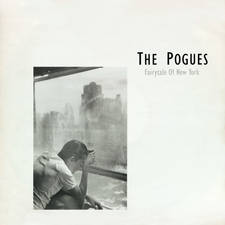Drugs Commission Reports
The Independent Commission tasked with finding ways to reduce drug related deaths in Brighton & Hove published its recommendations on Thursday. Read a summary below and hear our interview with Commission Chairman, Peter James
Drug 'consumption rooms' should be considered as a way to reduce drug-related deaths in Brighton & Hove, and more people should be trained to administer a life-saving overdose antidote, according to a new report which sets out a series of measures to reduce the harm drugs cause in the city.
Real time data on supply routes and drug taking trends, such as new 'legal highs', should also be collected so that education, treatment and enforcement can respond more quickly to changing trends.
The report is from the Independent Drugs Commission for Brighton & Hove and follows a year-long investigation that looked at how services can best reduce the harm caused by drugs. The Commission consists of 10 independent experts who have worked over the past year to review the challenges presented by illegal drug markets and drug use in Brighton and Hove, and the effectiveness of responses. Supported by Brighton & Hove City Council, and representatives from the Police, Probation and Health authorities, they conducted a series of discussions and consultations, and have produced a set of conclusions and recommendations.
Brighton & Hove shed the title of 'Drugs Death Capital of the UK' in February with new figures showing the city standing in 8th position nationally with 9 deaths per 100,000 residents aged over 16 years, equivalent to 20 deaths each year. In 2000 67 Brighton & Hove residents died from substance misuse. Drug use however is still high and more than 60,000 people in the city have used illegal drugs with more than 2,000 problem heroin and cocaine users, according to the Commission.
Around 1,442 individuals attended treatment services in the city in the financial year 2011-2012 with heroin, crack cocaine, powder cocaine and cannabis the main problem drugs.
Drug services for young people should also be separated from those for adults so that younger users don't have to mix with older more established users, the report recommends. It also says that there should be more creative use of web and social media as part of education, intervention and support services for young people.
The Commission's report will be considered by the Safe in the City Partnership Board which meets on 30 April and is chaired by Brighton & Hove City Council chief executive Penny Thompson, as well as by the new Health and Wellbeing Board.
Independent Drug Commission for Brighton & Hove vice chair Mike Trace said:
"This has been a thorough investigation involving drug users themselves, other people affected by drugs, key agencies and leading experts in Brighton & Hove to try to come up with ideas to minimise the harm that drugs cause the city. I am delighted that so many people took part in this commission's work, particularly young people, and those affected by drug use, as well as treatment and policy experts. By bringing key people together in the same room, the Commission has helped open up the discussion to make sure services in the city are working in the best way to reduce the harm caused by drugs."
Cllr Rob Jarrett, chair of the adult care and health committee, said:
"Brighton & Hove has had a problem with drug abuse for decades and we're determined to do something about it so we take these recommendations very seriously.
"These recommendations should help us strengthen our existing pioneering services that are now tailored to users and delivering real results to help combat the problem."
Brighton & Hove director of public health Tom Scanlon said:
"We have a relatively high number of drug users in the city, and in the past we have had high numbers of drug-related deaths. So we welcome these recommendations and will work closely with key partners to make sure that the ideas in the Report complement our work on helping people fully recover.
"We have come a long way from the peak in 2000 when 67 Brighton & Hove residents died from drug use. While this has fallen to 20 deaths, each of these still represents a personal tragedy for the person concerned and for families and friends.
"We have made progress in part by working much better across health, social care, housing and the voluntary sector through having named key workers for clients. We trained hundreds of drug users' and their partners on how to administer life-saving antidotes in the event of opiate overdose. Crucially, we now also have a care pathway that focuses on full recovery, quickly following up on people who drop out of treatment and bringing them back into care so that they can live full, drug-free lives."
Peter James on Drug Commission 18.4.13

